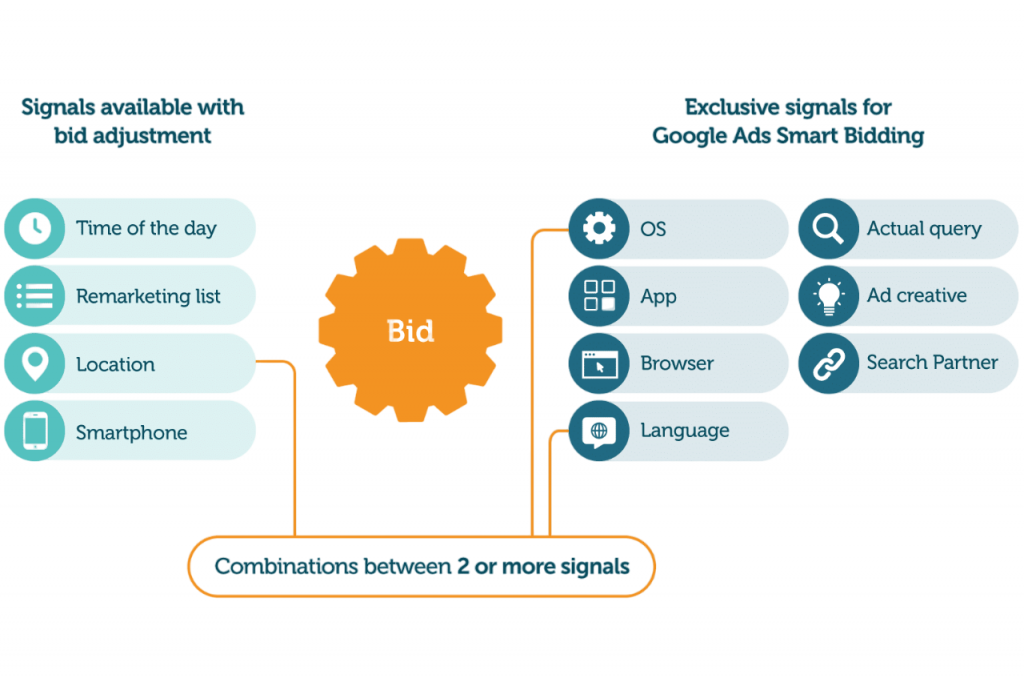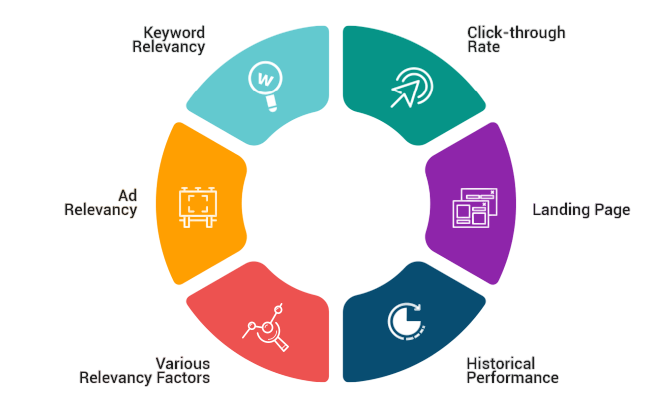
- What is SEM (Search Engine Marketing)?
- Introduction to Search Engine Marketing
- SEM vs SEO
- Google Ads Overview
- Keyword Research in SEM
- Creating Ad Campaigns
- Bidding Strategies
- Ad Quality Score
- Campaign Optimization
- Measuring SEM Success
- SEM Tools
- Trends in SEM
What is SEM (Search Engine Marketing)?
Search Engine Marketing (SEM) is a digital marketing strategy that increases the visibility of a website in search engine results pages (SERPs) primarily through paid advertising. Unlike Search Engine Optimization (SEO), which focuses on organic traffic, SEM involves placing targeted ads in front of potential customers who are actively searching for related products or services a strategic distinction explored in Digital Marketing Training, where learners compare long-term visibility tactics with paid acquisition models, mastering keyword bidding, ad copy creation, and ROI tracking to deploy search campaigns that align with business goals and audience intent. SEM plays a crucial role in driving immediate traffic, enhancing brand awareness, and supporting business growth, particularly when rapid results are required.
Ready to Get Certified in Digital Marketing? Explore the Program Now Digital Marketing Online Training Offered By ACTE Right Now!
Introduction to Search Engine Marketing
Search Engine Marketing combines the power of search engines with the precision of paid marketing. The most commonly used platform for SEM is Google Ads. However, other search engines, such as Bing and Yahoo, also offer paid advertising options. SEM enables marketers to bid on specific keywords that users enter into search engines, ensuring their ads appear alongside organic search results a paid strategy often mastered by professionals featured in Career Paths for Today’s SEO Specialist, where roles like Search Engine Marketer (SEM Expert) require proficiency in keyword bidding, ad placement, and ROI tracking. This specialization complements organic SEO efforts and opens career opportunities in performance marketing, PPC strategy, and cross-channel campaign management. These ads are typically displayed at the top or bottom of the SERPs and are marked as “sponsored” or “ad.” SEM offers a measurable, scalable, and fast-acting approach to capturing consumer interest at the moment of intent.
SEM vs SEO
- Though both SEM and SEO aim to boost visibility on search engines, they differ significantly. SEO focuses on long-term strategies to improve organic rankings through content optimization, backlinks, and technical enhancements.
- SEM, on the other hand, provides instant visibility via paid ads. While SEO is cost-effective over time, SEM offers precise targeting and quicker results, making it ideal for promotions, seasonal campaigns, or testing new products. A balanced digital strategy typically incorporates both approaches to cover both short-term gains and long-term growth.
- Keyword research is crucial to the success of SEM. Marketers must identify search terms that their target audience uses and assess factors like search volume, competition, and cost-per-click (CPC). Tools such as Google Keyword Planner, SEMrush, and Ahrefs help uncover high-performing keywords.
- Long-tail keywords, which are longer and more specific queries, often yield a better ROI due to lower competition and higher intent. Grouping keywords into tightly themed ad groups allows for better ad relevance, which improves quality scores and reduces CPCs.
- The Quality Score is a metric that Google uses to determine the relevance and quality of your ads. It affects your ad rank and CPC. The score is based on factors such as expected click-through rate, ad relevance, and landing page experience. A higher Quality Score means your ads can achieve better positions at a lower cost.
- To improve it, ensure that your keywords are tightly aligned with ad copy, use clear CTAs, and create high-quality landing pages that load quickly and provide value to the user. Regularly reviewing and optimizing ads is essential for maintaining a high score.
- Once a campaign is live, optimization becomes a continuous process. Marketers analyze performance metrics such as impressions, clicks, conversions, bounce rates, and cost-per-click to identify what’s working and what’s not. Based on this data, they can pause underperforming keywords, test different ad copies, adjust bids, or refine targeting.
- Ad extensions, such as site links, callouts, and structured snippets, can be used to enhance visibility and engagement. A/B testing is crucial to test variations in headlines, CTAs, and landing pages to find the most effective combinations.
- Several powerful tools are available to support SEM efforts. Google Ads itself includes built-in features for keyword research, bidding, ad creation, and analytics. Other tools, such as SEMrush and Ahrefs, offer advanced competitor analysis and keyword data capabilities explored in Guide to YouTube Marketing, where marketers learn to optimize video campaigns using search intent, keyword targeting, and performance metrics. These tools empower creators to align content with viewer demand and maximize visibility across both YouTube and Google search ecosystems.
- Google Analytics provides deep insights into user behavior and conversion tracking. SpyFu and iSpionage help uncover competitor keywords and ad copy. Bid management tools such as WordStream and Optmyzr assist with automation and optimization.
To Explore Digital Marketing in Depth, Check Out Our Comprehensive Digital Marketing Online Training To Gain Insights From Our Experts!
Google Ads Overview
Google Ads is the most popular SEM platform, allowing advertisers to create campaigns that target specific search queries, demographics, devices, locations, and even times of day. Advertisers can choose from various ad types, including Search Ads (text-based), Display Ads (visual), Shopping Ads (product listings), Video Ads (YouTube), and App Promotion Ads. Each campaign type serves different goals search ads for intent-driven conversions, display ads for brand awareness, and video ads for engagement—strategies often redefined in Examples of Successful Rebranding, where brands like Dunkin’, Domino’s, and Tupperware revamped their messaging and ad formats to align with evolving customer expectations and digital behaviors. Google Ads provides detailed metrics to help marketers evaluate and refine their campaigns.
Keyword Research in SEM
Looking to Digital Marketing Training? Discover the Digital Marketing Expert Masters Program Training Course Available at ACTE Now!
Creating Ad Campaigns
Creating a Search Engine Marketing campaign involves several steps: selecting the campaign objective (e.g., website traffic, sales, leads), choosing the right campaign type (Search, Display, Video), and setting up ad groups with relevant keywords and ads. Each ad should include a compelling headline, a strong call-to-action (CTA), and an appropriate landing page fundamentals emphasized in Digital Marketing Training, where learners study high-converting ad structures, persuasive CTA techniques, and landing page alignment to maximize click-through rates, reduce friction, and guide users seamlessly from interest to action across paid and organic campaigns. Advertisers must define their target audience, set geographic locations, determine daily or monthly budgets, and select bidding strategies. The success of the campaign relies on continuous monitoring and adjustment to improve performance metrics such as CTR (Click-Through Rate) and ROI.
Bidding Strategies
Google Ads offers various bidding strategies to align with different goals. Manual CPC allows advertisers to control individual keyword bids a precision tactic explored in Learn Digital Marketing, where learners master bid management, keyword-level optimization, and campaign budgeting. This strategy empowers marketers to fine-tune ad spend, prioritize high-performing terms, and maintain full control over cost-per-click decisions. At the same time, automated strategies utilize machine learning to optimize bids based on the likelihood of conversions.

Options include Target CPA (Cost Per Acquisition), Target ROAS (Return on Ad Spend), Maximize Clicks, and Enhanced CPC. Choosing the right strategy depends on the campaign objective and budget. For instance, a new business may focus on maximizing clicks to drive traffic. At the same time, a mature e-commerce site may use Target ROAS to maintain profitability.
Preparing for Digital Marketing Job Interviews? Have a Look at Our Blog on Digital Marketing Interview Questions and Answers To Ace Your Interview!
Ad Quality Score

Campaign Optimization
Measuring SEM Success
Success in Search Engine Marketing is measured by how well the campaign achieves its intended goals. Key performance indicators (KPIs) include CTR, conversion rate, Quality Score, CPA, ROAS, and impression share critical metrics that drive Digital Transformation across marketing ecosystems. By tracking these indicators, businesses can evaluate ad relevance, cost-efficiency, and profitability, enabling smarter decisions, agile optimizations, and scalable growth in a data-driven landscape. Google Ads and tools like Google Analytics offer dashboards to track user behavior, conversions, and the performance of different campaigns. Attribution models help marketers understand which ads or keywords contributed most to conversions. Reviewing these metrics regularly enables data-driven decisions, more effective budgeting, and enhanced ROI.
SEM Tools
Trends in SEM
SEM continues to evolve in response to changing technologies and consumer behaviors. Automation and machine learning are playing an increasingly significant role in bid management and targeting. Responsive search ads, which automatically test different combinations of headlines and descriptions, are gaining popularity a dynamic format covered in Digital Marketing Training, where learners explore how Google Ads uses AI to optimize ad delivery by selecting the most effective combinations based on user intent, device type, and search context. Mastering RSAs enables marketers to improve click-through rates, streamline A/B testing, and enhance campaign performance with minimal manual effort. Voice search and mobile-first indexing are also reshaping keyword strategies. Local search ads, especially for mobile users, are becoming vital for brick-and-mortar businesses. Privacy updates and cookie restrictions are prompting marketers to prioritize first-party data and conversion APIs. Staying current with SEM trends ensures competitive advantage and campaign relevancy. In conclusion, Search Engine Marketing offers businesses a fast and measurable way to connect with their target audience at the moment they are actively searching. From keyword research and ad creation to campaign optimization and analytics, SEM is a dynamic and data-driven discipline that requires both strategic planning and ongoing adjustment. Whether you’re aiming to drive traffic, generate leads, or boost sales, SEM is an essential component of a successful digital marketing strategy.




